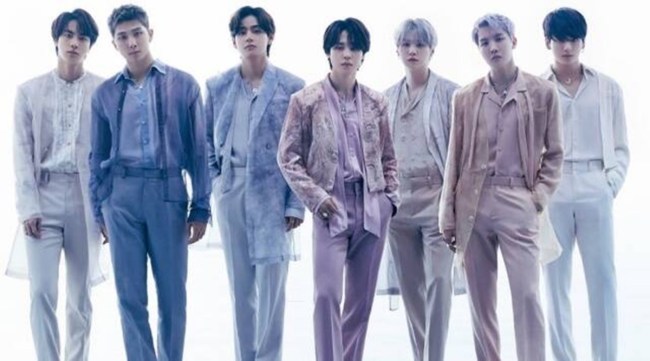Opinion A decade of BTS: The band created the ARMY, the ARMY sustains the band
Their confessional, blunt lyrics are rare in the South-Korean industry where idol groups are contractually debarred from having a personal life, let alone express themselves. Their fans have also played a critical role in pushing against the domination of the West in music
 "BTS owned its status as the underdog who was struggling to compete with popular bands from studios with massive budgets and resources," writes Preetika Ravidas
"BTS owned its status as the underdog who was struggling to compete with popular bands from studios with massive budgets and resources," writes Preetika Ravidas Written by Preetika Ravidas
It’s been 10 years since seven teenagers in a boyband named Bangtan Sonyeondan — “Bulletproof Boy Scouts” — debuted in the Korean music scene. Today, they are a household name with fans in every corner of the world. BTS, over the past decade, have transformed from underdogs in the K-pop industry to a global cultural phenomenon.
The question is: How did this septet from South Korea, which sings predominantly in Korean, manage to transcend borders?
One of the main reasons, in my opinion, is the authenticity they convey not only with their music and lyrics but also through their numerous interactions with fans. Debuting in the K-pop industry where every group is polished to perfection, BTS carved a space for vulnerability and relatability. Its debut single ‘No More Dream’ was an ode to teen apathy, a rebellion against traditional Korean values. Their confessional, blunt lyrics are rare in an industry where idol groups are contractually debarred from having a personal life, let alone expressing themselves and studios control every aspect of their image to present the highest ideals of beauty and talent.
In this toxic and regimented environment, a successful producer-songwriter, Bang Si Hyuk, set forth to create a studio and cultivate a socially-conscious and creative group. BTS owned its status as the underdog who was struggling to compete with popular bands from studios with massive budgets and resources. Its members openly share their creative anxieties and personal battles through their songs.
BTS has also been active on social media. One can open up any social media platform and find content about the members aimlessly frolicking in a park, getting drunk together, going on hikes or playing football with each other. This has allowed fans to see their own friendships and emotions reflected in the band.
With a vast discography and numerous high-profile collaborations under its belt, BTS has established a presence in the global music industry. The concerts are immersive experiences, with meticulously choreographed numbers, technological and artistic innovations. Even A-list celebrities make a point to attend.
The band also produces art-flick videos such as ‘Blood, Sweat and Tears’, a blend of surrealism, symbolism and classical art, which received international recognition in 2016. Their 2020 track, ‘Black Swan’, manages to convey every artist’s dilemma of losing passion and purpose: “Oh, that would be my first death / I’ve been always afraid of / If this can no longer resonate / No longer make my heart vibrate / Then like this may be how I die my first death.”
The dedicated fanbase has also played a huge part in propelling BTS to unprecedented stardom. In their early years, the ARMY would bombard international retailers like Amazon and Walmart, and radio stations across the globe with pleas for album sales and track requests. They made sure that the band’s voice gets a platform, fighting against the West-dominated music industry.
The ARMY isn’t just making waves in the music industry but also has become a force to reckon with in the social justice arena. Along with the band, they have drowned out racist hashtags on social media, condemning anti-Asian hate. In early 2020, during the peak of the Black Lives Matter movement, BTS and their agency donated $1 million to the BLM cause and immediately, the ARMY organised a campaign to match their donation and achieved the goal in just 25 hours.
It’s been ten years. A lot has changed for the band. A year ago, shortly after their ninth anniversary, the members went on a hiatus to pursue solo projects and complete their mandatory military service as per South Korean law. Even though the members individually celebrated their 10th anniversary from military camps, their houses or work instead of their annual celebratory dinner, the fans made sure to express their love by lighting up cities in purple (BTS’s official fandom colour) and putting up billboards for the band.
The writer is currently pursuing a master’s in Mass Communication from Jamia Millia Islamia





